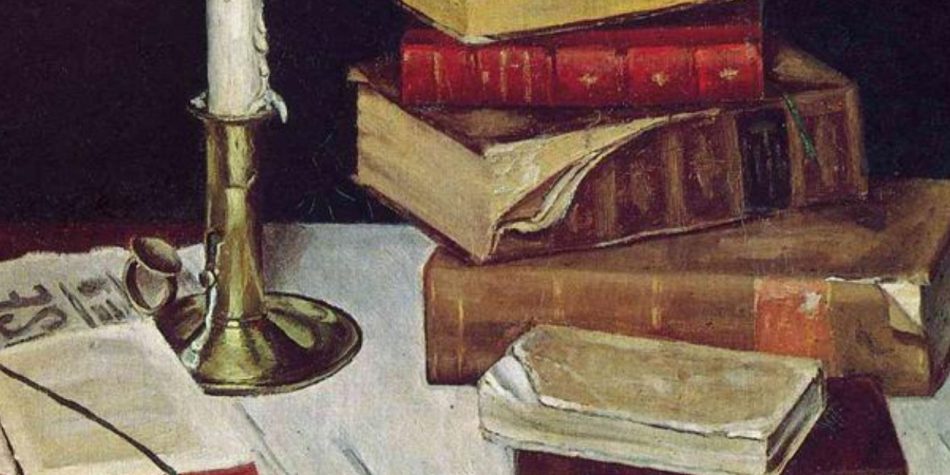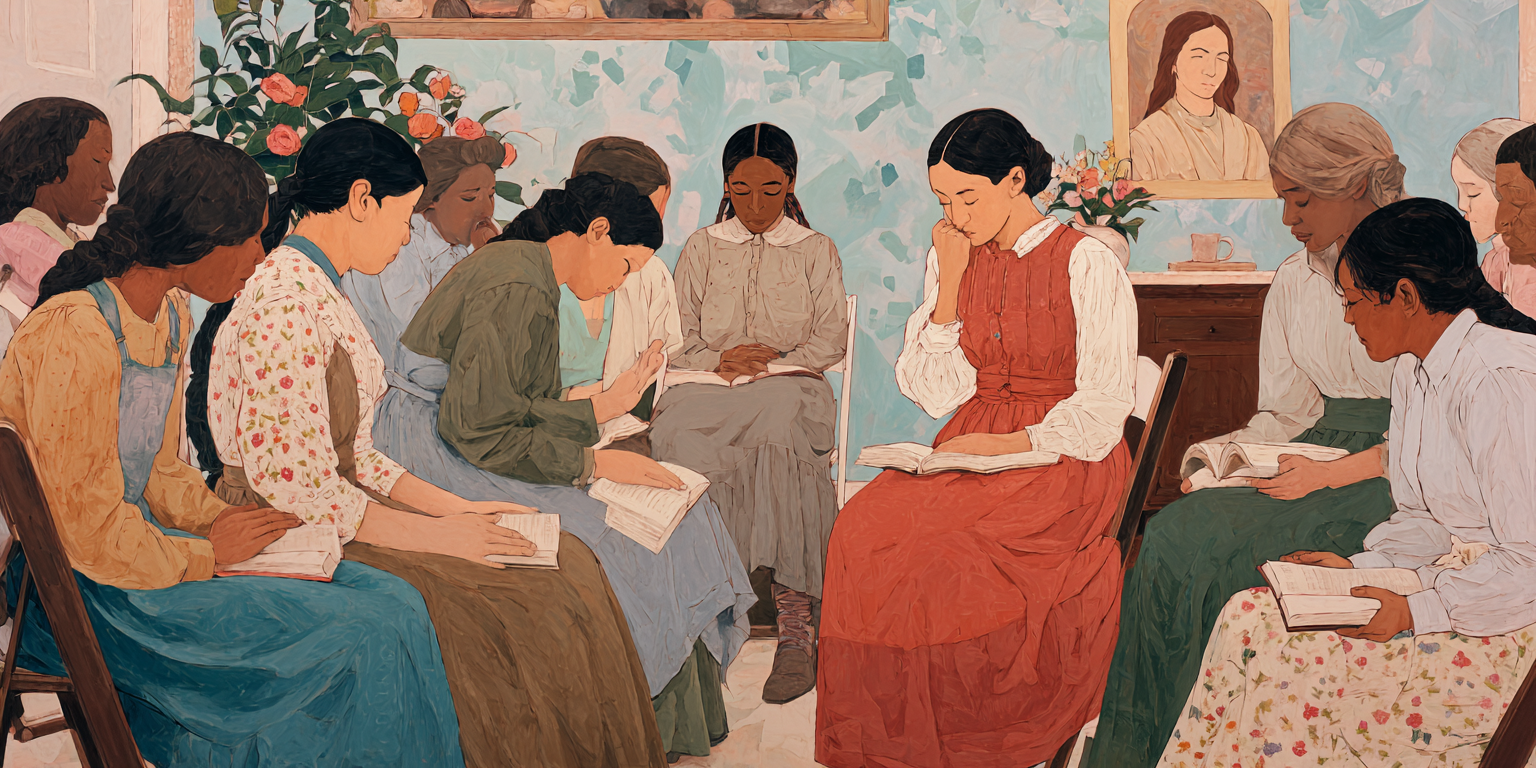The following five books contain rich insights into caring for the earth, loving each other, the false dichotomy we create of sacred and secular, the beauty of choice, and the unfathomable depth of scripture.
Praise Be to You (Laudato Si’): On Care for Our Common Home
Pope Francis
Pope Francis uses a memorable phrase in this important encyclical letter from May 24, 2015: the “throwaway culture.” I have been a guilty participant in it for much of my 35 years on our precious planet. I often use and consume more than I need of food, plastic cups, paper towels, tissues, water, and, yes, even books. My three little daughters have picked up on my poor habits. When we are out of a favorite snack, one of them will inevitably say, “That’s OK—we can buy more!” Yes, we can buy more. But does that mean we should? As Francis’ predecessor Pope Benedict once wrote, “purchasing is always a moral—and not simply economic—act.”
The venerable leader of the Vatican tells us he is writing not just to Catholics but to “every person living on this planet.” With this encyclical from 2015, he wants to begin “a new dialogue about how we are shaping the future” of this earth. Much of the book is a description of the dire circumstances brought about by pollution and waste and thoughtlessness. These include climate change and global inequality and loss of biodiversity. The last two chapters outline a way forward rooted in dialogue—dialogue in the international, national and local settings, as well as dialogue between religion and science.
“The time has come,” Pope Francis writes, “to accept decreased growth in some parts of the world, in order to provide resources for other places to experience healthy growth.” In other words (just as we are learning in the COVID-19 pandemic), all of us in the Western world can get by with much, much less. And, to ensure this truth lodges soundly in the mind, the Holy Father adds this: “The mindset which leaves no room for sincere concern for the environment is the same mindset which lacks concern for the inclusion of the most vulnerable members of society.” That is a powerful punch to the gut of my penchant for materialistic prodigality
We are all in this together—both on earth and in heaven. In the here and now, the Argentinian writes, “the best way to restore men and women to their rightful place, putting an end to their claim to absolute dominion over the earth, is to speak once more of the figure of a Father who creates and who alone owns the world. Otherwise, human beings will always try to impose their own laws and interests on reality.”
And in the hereafter?
“Eternal life will be a shared experience of awe,” the Pope writes, “in which each creature, resplendently transfigured, will take its rightful place and have something to give those poor men and women who will have been liberated once and for all.”
The Prodigal Prophet: Jonah and the Mystery of God’s Mercy
Timothy Keller
The book of Jonah is one of the ten shortest books in the Hebrew Bible. Yet brevity, as Shakespeare wrote, is the soul of wit—and, we might add, truth. Prolific author Timothy Keller, the well-known founder of Redeemer Presbyterian Church in New York City, shows us in a tiny book of his own just how remarkably relevant Jonah’s life is for us today.
Jonah was a “highly partisan nationalist” and an “intensely patriotic” Hebrew. He was called to preach to the massive Assyrian capital city of Ninevah. Assyria was one of the cruelest and most violent empires of the ancient world. Instead of heading east to Ninevah, Jonah does the opposite—he heads west to Joppa to get on a boat (full of pagans) and get as far away from God’s call as possible. The Assyrians, Jonah no doubt thought, do not deserve mercy.
Mr. Keller relays one biblical commentator’s important insight that the Joppa sailors are, in modern terms, “non-Christians. But … the lot of non-Christians and Christians is … linked; they are in the same storm, subject to the same peril, and they want the same outcome … and this ship typifies our situation.”
Later, of course, Jonah goes to Ninevah. God says their city will be destroyed in 40 days unless they change their ways. Wonder of wonders, they listen and obey, and God withholds his judgment. Instead of joy, Jonah is outraged.
Here, Keller says, we learn the need to withstand the pull to find reasons to despise other people.
“The book of Jonah is a shot across the bow [at our culture],” he writes. “God asks, how can we look at anyone—even those with deeply opposing beliefs and practices—with no compassion? If your compassion is going to resemble God’s, you must abandon a cozy world of self-protection. God’s compassion meant he could not stay perched above the circle of the earth and simply feel bad for us. He came down, he took on a human nature, he literally stepped into our shoes and into our condition and problems and walked with us.”
As Kingfishers Catch Fire: A Conversation on the Ways of God Formed by the Words of God
Eugene H. Peterson
You may recognize the title of this book from the poetry of Gerard Manley Hopkins. The poem, full of metaphors for congruence, was one of several things the late Eugene H. Peterson (1932–2018) says helped him become a pastor after the pattern of the Christ. He couldn’t help his congregation without his inner life aligning with his outer life. “The Christian life,” Peterson writes, “is the lifelong practice of attending to the details of congruence.”
The book is a compilation of sublime sermons from Peterson’s 29 years pastoring Christ Our King Presbyterian Church in Bel Air, Maryland. The layout of the text itself is a testament to congruence. Seven sections—one each for Moses, David, Isaiah, Solomon, Peter, Paul, and John—with seven chapters each, for a total of 49 chapters.
One memorable gem comes in his commentary on Isaiah. Peterson describes the “bad habit” many of us have of separating things and people into camps of secular and sacred. We label our jobs, our entertainment, our politics, and our time as secular. We give to God scripture and church and prayer and heaven.
“Prophets will have none of this,” Peterson writes. “They contend that everything, absolutely everything, takes place on sacred ground. God has something to say about every aspect of our lives: the way we make our money and the way we spend it, the politics we embrace, the wars we fight, the catastrophes we endure, the people we hurt, and the people we help. Nothing is hidden from the scrutiny of God. Nothing is exempt from the rule of God. Nothing escapes the purposes of God. Holy, holy, holy.”
East of Eden
John Steinbeck
Of the several stimulating dialogues in this book that details the lives of the Trasks and the Hamiltons in California’s Salinas Valley, the one central to the novel is an outstanding exposition of Genesis 4:1–16. Lee (a Cantonese servant of Adam Trask) describes how he and a group of Chinese elders came to a better understanding of a key phrase in Genesis 4:7. The American Standard Version has God telling Cain that “if thou doest well … do thou rule over” sin. The King James Version renders the sentence this way: “if thou doest well … thou shalt rule over” sin.
Lee gives us a lesson in biblical exegesis and the value of digging deeper for truth. He says he and the Chinese elders discover the original Hebrew word for those italicized phrases (he says it is timshel) means something very different: “thou mayest.”
“That gives a choice,” Lee says. “It might be the most important word in the world. That says the way is open. That throws it right back on a man. For if ‘Thou mayest’—it is also true that ‘Thou mayest not.’ … There are many millions in their sects and churches who feel the order, ‘Do thou,’ and throw their weight into obedience. And there are millions more who feel predestination in ‘Thou shalt.’ Nothing they may do can interfere with what will be. But ‘Thou mayest!’ Why, that makes a man great, that gives him stature with the gods, for in his weakness and his filth and his murder of his brother he has still the great choice. He can choose his course and fight it through and win.”
“Do you mean these Chinese men believe the Old Testament?” Adam asks Lee.
“These old men believe a true story, and they know a true story when they hear it,” Lee responds. “They are critics of truth. They know that these sixteen verses are a history of humankind in any age or culture or race. They do not believe a man writes fifteen and three-quarter verses of truth and tells a lie with one verb. Confucius tells men how they should live to have good and successful lives. But this—this is a ladder to climb to the stars. You can never lose that. It cuts the feet from under weakness and cowardliness and laziness.”
The Five Books of Moses
Robert Alter translation
This is the first portion of Alter’s three-volume, 3,000-page masterpiece translation of the Hebrew Bible. (The other two parts, of course, are the Prophets and the Writings.) This publication is the fruit of nearly two and a half decades of work. He shows us the careful intricacies and delicate rhythms of the Hebrew writers. Each page of the octogenarian emeritus Berkley professor’s first volume is peppered with educational footnotes to guide us, Virgil-like, from the creation of the world up to the Israelites preparing to enter Canaan.
A suitable example of the richness of his renderings is his translation of Genesis 24, verses 16 through 20. While he says most modern translators suppress the Hebrew particle waw (“and”), he retains it in every case in these verses. Why? Because it does proper justice to Rebekah’s remarkable hospitality.
And [Rebekah] came down to the spring and filled her jug and came back up. And the servant ran toward her and said, ‘Pray, let me sip a bit of water from your jug.’ And she said, ‘Drink my Lord,’ and she hurried and tipped down her jug on one hand and let him drink. And she let him drink his fill and said, ‘For your camels, too, I shall draw water until they drink their fill.’ And she hurried and emptied her jug into the trough, and she ran again to the well to draw water for all his camels.
Alter says other translations, such as the Revised English Bible, paraphrase the original Hebrew instead of representing it as it is. While Rebekah is performing essentially the same acts in the various translations, Alter says “the compressions, syntactical reorderings, and stop-and-start movements of the modernizing version” make the encounter at the well “seem rather matter-of-fact.” This obscures that she is, in fact, “doing something quite extraordinary,” Alter says. “Rebekah at the well presents one of the rare biblical instances of the performance of an act of ‘Homeric’ heroism.” How so? The “sip of water” the servant asks for is so much more than that. It is also a request to refresh his many camels—each of which, Alter teaches us, can drink as much as 25 gallons of water. “The chain of verbs tightly linked by all the ‘and’s’ does an admirable job in conveying this sense of the young woman’s hurling herself with prodigious speed into the sequence of required actions.”
Scripture deserves this kind of careful and detailed exegesis. As you read Alter’s work, you’ll no doubt agree that we are deeply in debt to him for helping us better understand one of the world’s most important books.
















